PORTUGAL'S FORGOTTEN COLONIAL WAR

Portugal's 1960-74 colonial conflicts in Africa are some of the era's lesser-known counterinsurgencies, but there is a lot to learn from them. Despite being a small country with a modest economy and tiny military, Portugal fought three wars in Angola, Mozambique and Portuguese Guinea (now Guinea-Bissau and Cabo Verde) for over a decade. Compared to similar conflicts in Vietnam and Algeria, Portugal's innovative strategies and the fact that a revolution in Portugal ended the war rather than outright defeat on the battlefield, has led to a degree of myth-making about Portugal's military prowess. Were they as successful on the battlefield as they claimed? And why was Portugal so eager to hold on to its colonies well after the colonial era had come to a close?
Imperial legacy
Portugal's regime wanted to use the explosive economic growth of its colonies to spearhead growth at home. Despite a large colonial empire and history of global commerce, by the mid-20th century Lisbon did not have the population, industrial base or economic might enjoyed by the US, UK or France. Antonio Salazar, who ruled Portugal from 1933 until 1968, hoped to extract the wealth of the colonies to underpin his legitimacy. By the mid-1960s the combined GDP of these colonies was on track to equalling that of Portugal itself, which provided an enormous opportunity to increase Lisbon's prosperity at the expense of its African subjects.
The desire to develop Portugal with the wealth of its colonies led the nation to use every excuse possible to maintain its possessions while the rest of the world was undergoing decolonisation. Most notably, while countries like France distinguished between the colonies and the 'metropole', Portugal's Salazar regime sought to portray the metropole and the Ultramar (the word for Portugal's overseas possessions) as a united nation.
Denne historien er fra Issue 111-utgaven av History of War.
Start din 7-dagers gratis prøveperiode på Magzter GOLD for å få tilgang til tusenvis av utvalgte premiumhistorier og 9000+ magasiner og aviser.
Allerede abonnent ? Logg på
Denne historien er fra Issue 111-utgaven av History of War.
Start din 7-dagers gratis prøveperiode på Magzter GOLD for å få tilgang til tusenvis av utvalgte premiumhistorier og 9000+ magasiner og aviser.
Allerede abonnent? Logg på
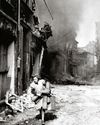
THE RUHR POCKET
The world's largest industrial complex, the Ruhr was where Nazi Germany's war machine was forged. If the Allies could capture it the conflict in Europe would effectively be over
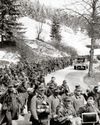
HITLER'S 'ALPINE FORTRESS
With the Rhine crossed and the Ruhr taken, Allied Supreme Commander Dwight D Eisenhower had to decide what came next. His orders would help shape the fate of Europe for decades to come

BLUNTING THE SULTAN'S SPEAR
During his 1532 invasion, Suleiman the Magnificent faced a seemingly simple obstacle in the small fortress of Koszeg, Hungary. What ensued was a bloody struggle between Ottoman firepower and imperial grit

BATTLE OF THE NILE NELSON vs NAPOLEON
In 1798, Britain's most celebrated admiral pursued the French across the Mediterranean, attempting to thwart General Bonaparte's mission to Egypt. The pursuit culminated in what was arguably the most strategically important naval battle of the Napoleonic Wars
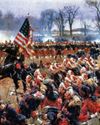
FREDERICKSBURG
The Confederate invasion of the north had been repulsed in Maryland by the Army of the Potomac. President Abraham Lincoln now urged his military to seize the initiative and crush the Confederates in the east and capture their capital Richmond. It would culminate in another catastrophic defeat

REMAGEN GATEWAY TO THE REICH
On 7 March 1945 the Ludendorff Bridge over the Rhine at Remagen was still standing - capturing it intact was vital to the Allied advance into Nazi Germany
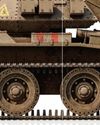
A13 MK III CRUISER COVENANTER TANK
Plagued with mechanical issues, the Covenanter was envisioned as an improved cruiser design but never deployed for overseas service
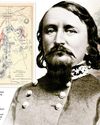
INSIDE PICKETT'S CHARGE
On 3 July 1863 a Confederate regiment – the 19th Virginia Infantry – marched into the jaws of Hell in one of the most infamous events in American military history
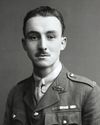
Heroes of the Victoria Cross: MILTON FOWLER GREGG
On 28 September, 1918, this Royal Canadian Regiment officer led his men through uncut barbed wire into enemy trenches
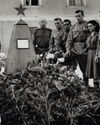
MARCH 1945
To commemorate 80 years since the Second World War, History of War will be taking a look at some of the key events taking place during each month of the conflict
